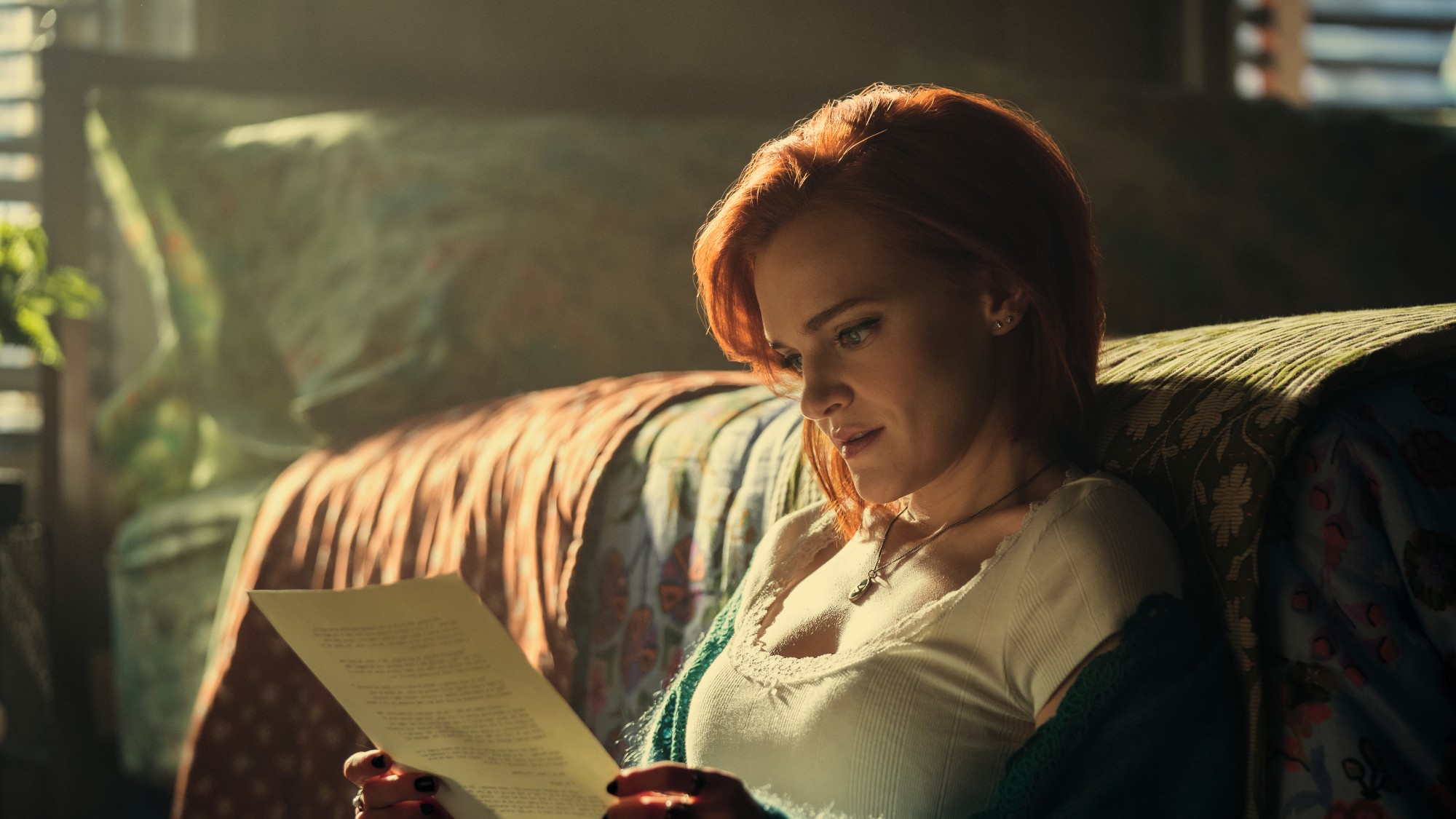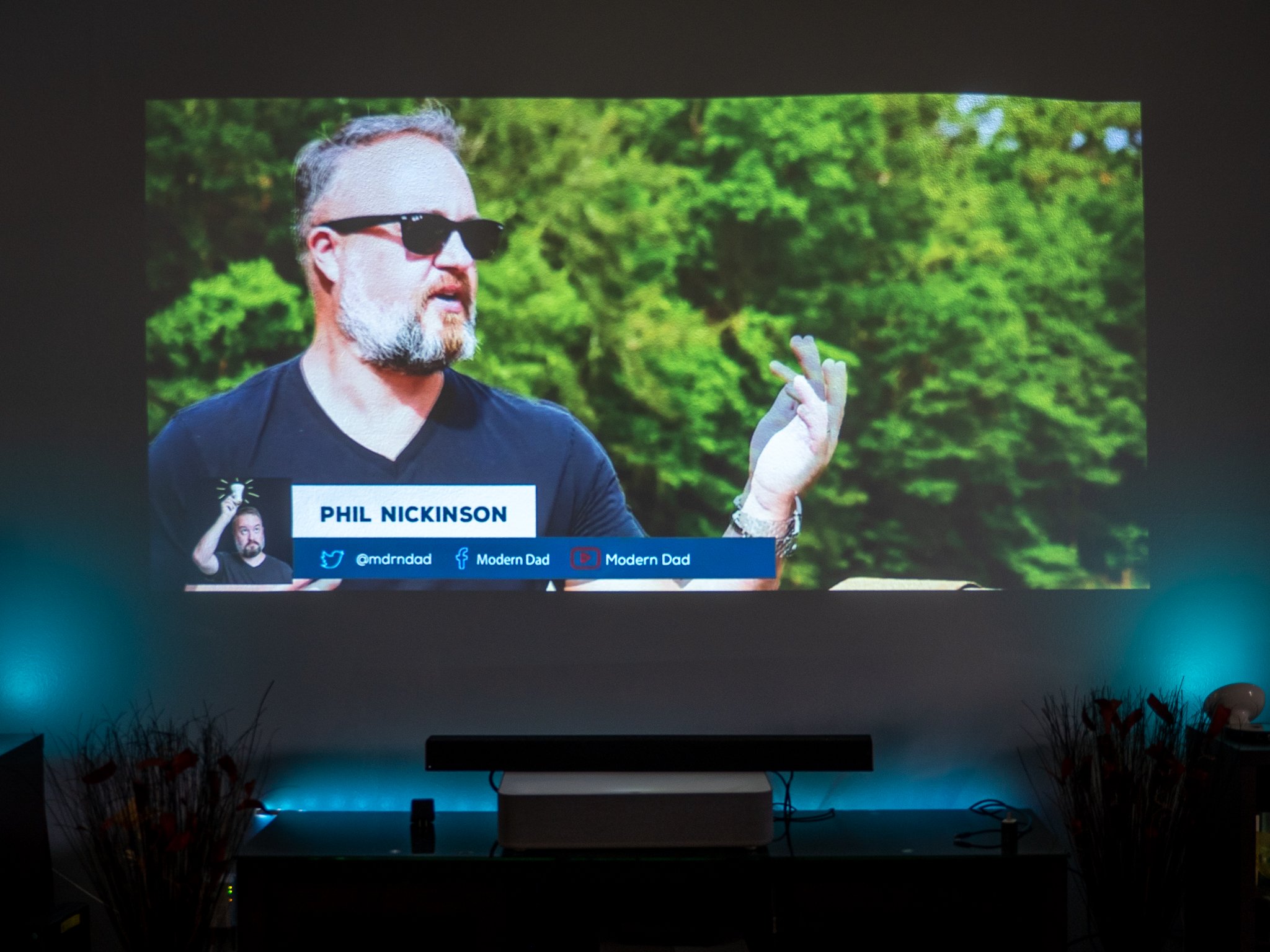
Bigger is better when it comes to video. Full stop. Nobody wants a smaller television. Nobody wants a smaller picture. And that's good, because bigger televisions — with higher resolutions — are getting less expensive all the time. Turns out that's also true for laser projectors.
I met up with the folks at VAVA at CES in January 2020, and they sent over their VAVA 4K Ultra Short Throw Laser Projector, which I've used for a couple months before it heads back home. It's a more-affordable laser projector. (Or maybe less unaffordable?)
And it's absolutely changed the way I watch things in my living room. In fact, it made me want to change the living room itself. I am, in fact, changed.
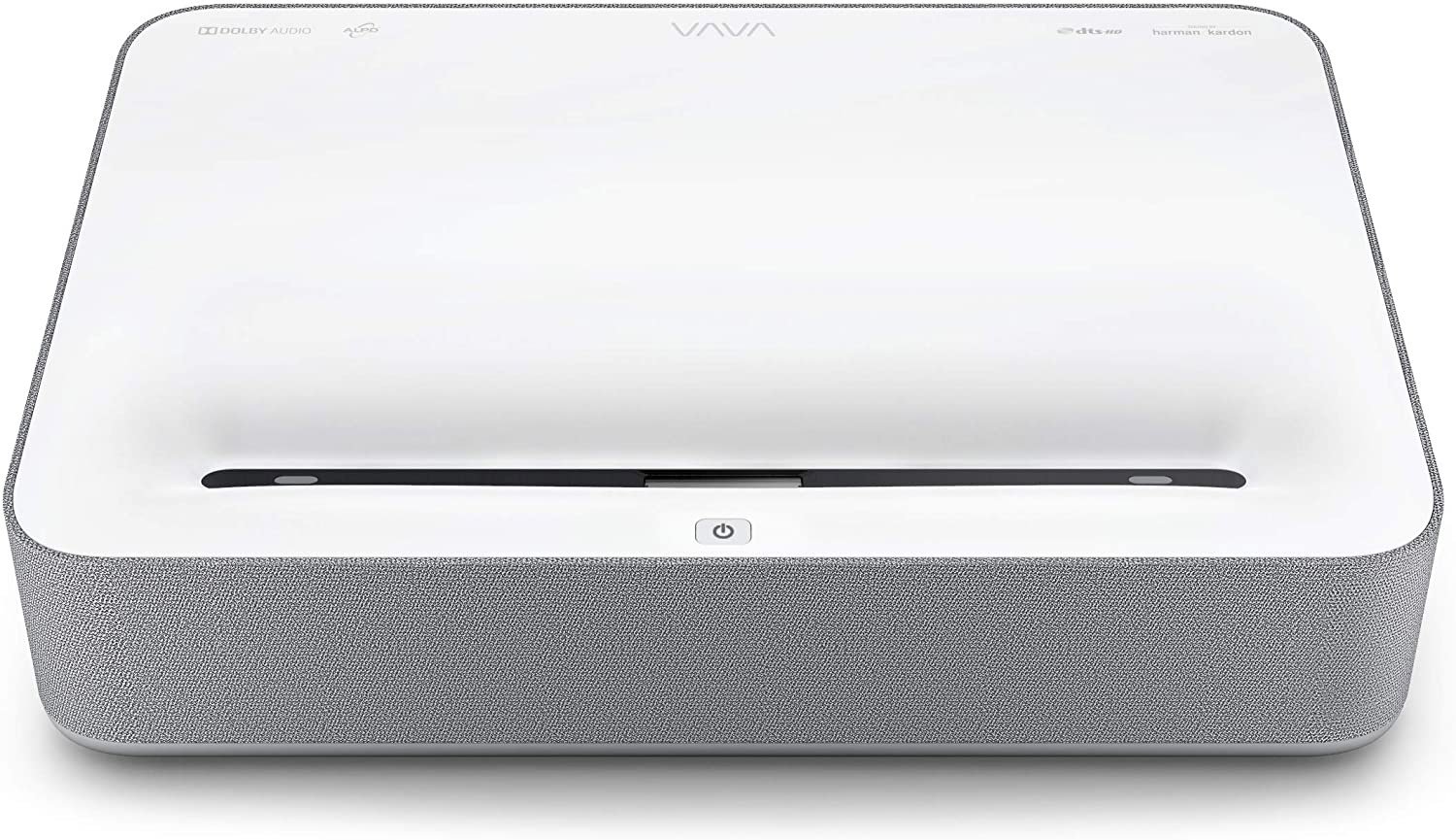
Ultra short throw 4K
The Botton Line: If you're going to spend the money on a projector — and change your entire setup because of it, this one hits the sweet spot of specs and price.
Pros
Cons
That's all there is to it?
VAVA 4K Ultra Short Throw Laser Projector What I Liked
Projectors always seemed like they were something other people. Someone with a dedicated home theater and means to mount the darn thing on the other side of the room. Ultra-short-throw projectors change that equation. There's no worry about mounting. No concerns about ceiling fans or people walking through the picture. I just put the projector on my usual entertainment center, moving it as close to the edge as I could to maximize the picture. The end result? About 120 diagonal inches. Incredible.
I'm not a big fan of instruction manuals. I love to just plug things in and see how they work, especially when I'm shoe-horning something in to my existing setup. And the VAVA performed admirably. I just plugged in the power, plugged my existing soundbar into the ARC input, and plugged in an NVIDIA Shield and Amazon Fire TV Stick 4K, since those were closest.
The VAVA projector gets you a huge 4K picture at a fraction of the cost.
It took just a little bit of wiggling to get the picture as close to square as I could on the wall — it's painfully evident when it's not lined up, so that was easy. Also a quick trip into the settings menu exposed controls for fine-tuning the alignment, whether you need to fix a corner just a tad, or scale down the entire picture to fit your screen. (As I was projecting directly onto the wall, that last part was moot.) Focus also took care of itself, too, but there's also a settings option if you need manual control for that. The only other setting I touched was to turn off the internal 60-Watt Harman Kardon speaker so audio would be using my Vizio surround system instead. The internal speaker isn't bad — surprisingly good, even. But it's also not a proper home-theater audio setup.
But otherwise, that was it. We were up and running. Huge picture. Mostly crisp picture. (More on that in a second.) And my usual sound.
And on paper, anyway it's fairly comparable to the more expensive LG Cinebeam 4K Laser Projector. (That's the $6,000 HU85LA model.) VAVA sports 2500 ANSI Lumen, while LG's maxes at 2700 ANSI Lumen. LG's also has a greater contrast ratio and a shorter throw, and smarter smarts built in. But it also costs about twice as much.
Another bright spot was the VAVA remote control. It's so easy for companies to skimp on the remote and end up with something bad. While the VAVA remote isn't some shining beacon of design, it's perfectly capable. It's benign. It does what it's s supposed to do, with the right buttons in the right places. Depending on your setup you might not even need it all that often — CEC control worked just fine for me for audio. But If you do need to use the included remote control, you're not going to hate it.
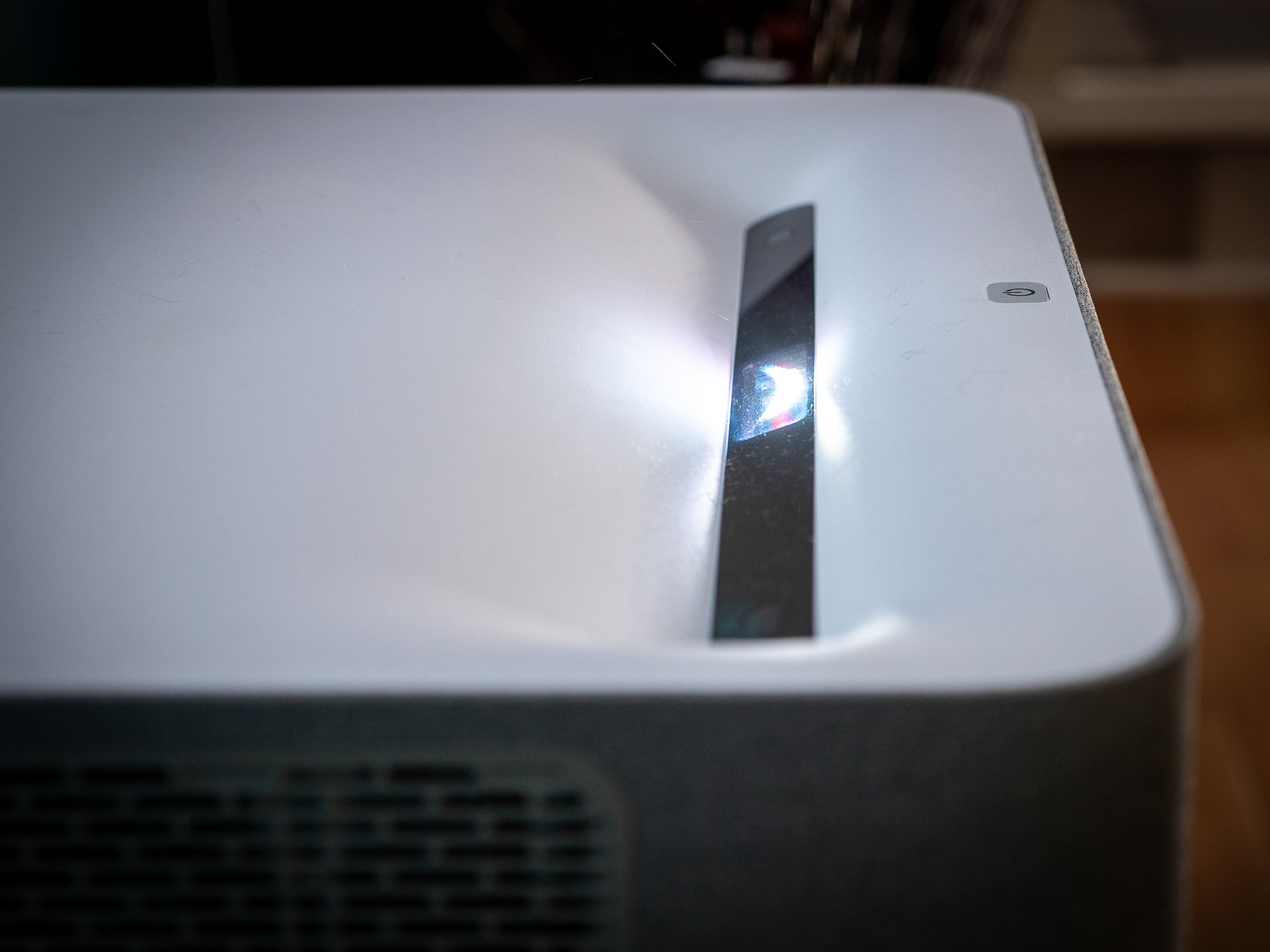
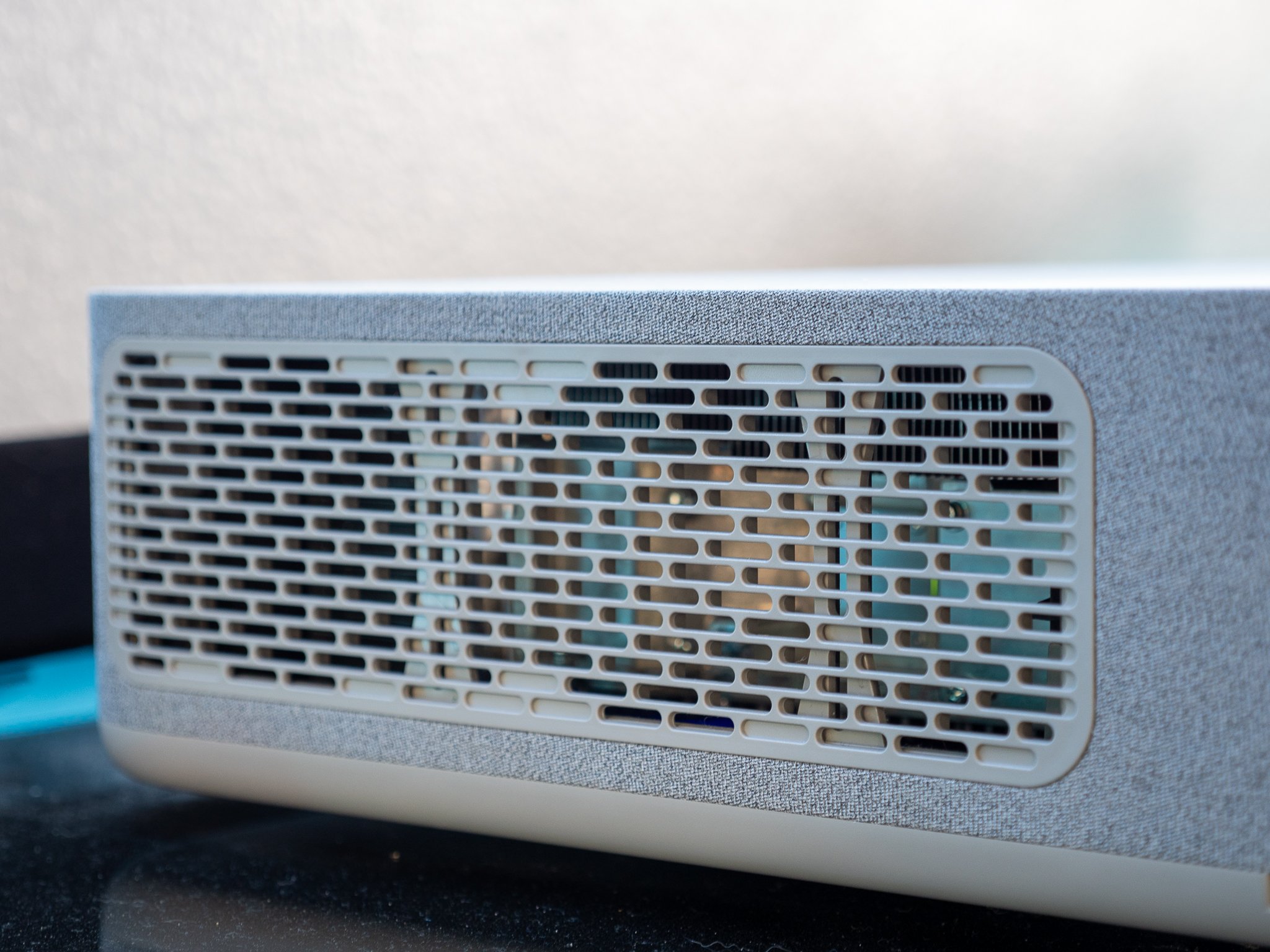
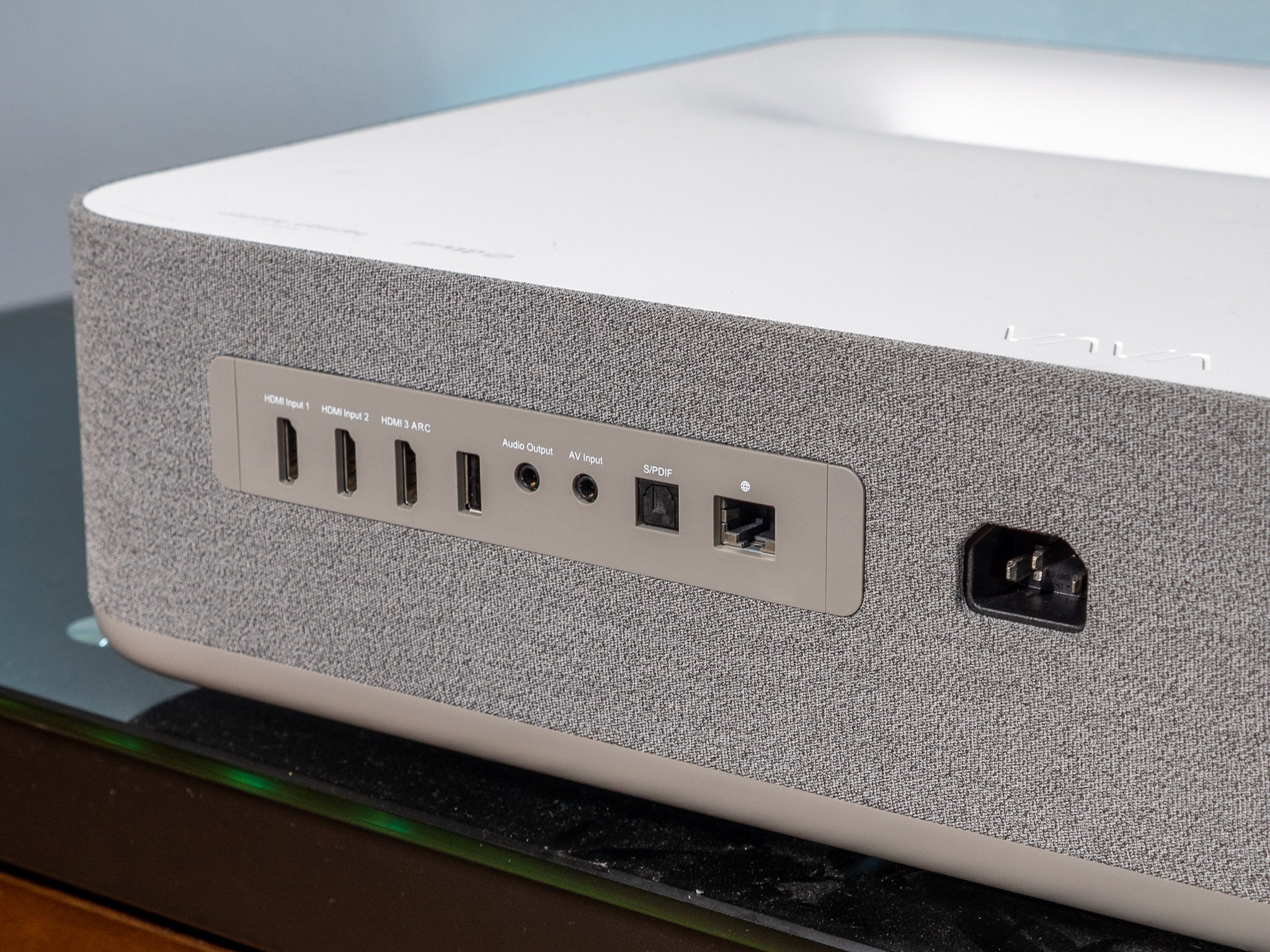
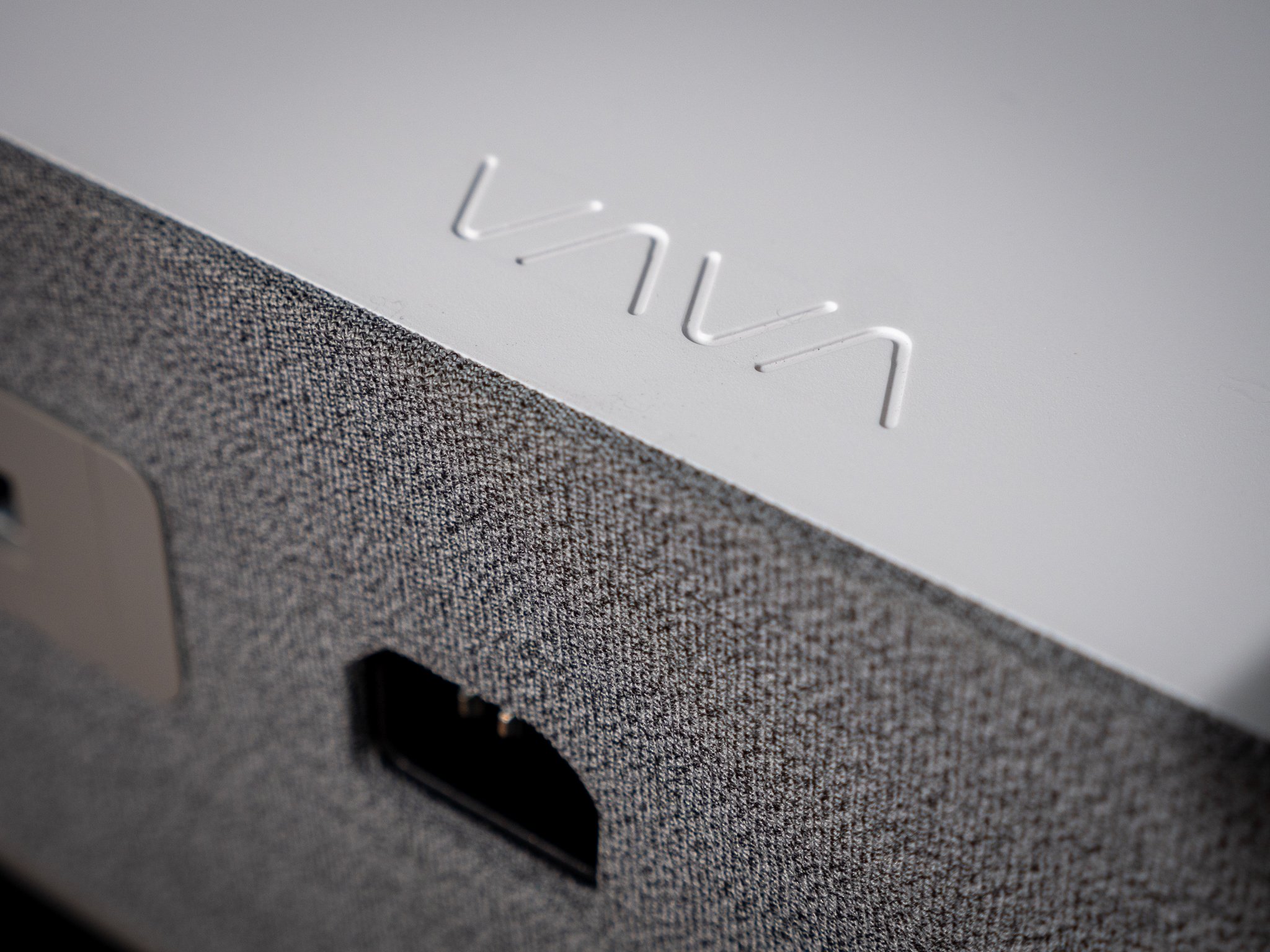
It's a short list
VAVA 4K Ultra Short Throw Projector What I Didn't Like
It's hard to find too many serious complaints about this projector. It does what it does, in the manner in which it's meant to do it. But that's not to say there aren't some things on the negative side of the equation.
Probably the biggest is that there's fan noise. Products like this create heat, and that heat needs to be ejected from said product somehow. And for that, there are fans. And you'll definitely hear the fan on the VAVA projector. There are two noticeable speeds, with faster being demonstrably louder. Having a proper home-theater audio setup mostly took care of that, especially if you have something with a proper subwoofer. It's also worth noting that the heat ejected is, well, hot. I have a computer set up about 4 feet away from the projector, and it was a little uncomfortable to work there when the projector was turned on, because of the warm air being blown directly at me. That's just something to keep in mind.
The other thing in the negative column here wasn't unexpected — the picture you get from projectors just look and feel different than conventional televisions. They're not as bright. Everything just sort of feels softer. On the other hand, the picture is huge . That's the tradeoff, and it wasn't unexpected.
A quick word on gaming: The idea of paying at 100 inches or more is enticing. And, indeed, it's a hell of a lot of fun. But serious gamers need to take into consideration that the VAVA projector tops out at 4K resolution at just 30Hz — that is until you change a hidden setting that allows for higher refresh rates. (Note to every manufacturer ever: Do not hide settings. Ever.) You're still not going to get crazy-fast refresh rates that hardcore gamers demand. But for us casual players? It's maybe good enough.
And while I'm not crazy about the the built-in Android-based operating system, it's functional. But I'd recommend just plugging in anything else. Anything from Roku. An Amazon Fire TV device. (I'm still partial to the Fire TV Stick 4K, which I've been using with the VAVA projector.) Or the NVIDIA Shield Android TV system. Or an Apple TV. Why, when this thing has Android and Aptoide (a third-party app store) already built in? Because I know them, and I trust them, and they'll keep updating their hardware for security reasons. (And I've been burned before .)
If I had my druthers ...
VAVA 4K Ultra Short Throw Laser Projector What I'd do different
What I very quickly learned using this projector is that it's not just like getting a bigger, better television. It really does change the viewing experience, and it really does change the way you want to address that experience.
First off, if you're serious about getting a projector, you're going to want to consider a screen of some sort. There are lots of options at varying prices. You can get something that resembles the old projector screens we saw in school as kids. Or you can get something permanent on your wall. Or you can get something that drops down from the ceiling. Or something that rises up from the floor. It's all a function of how much money you're willing to spend, and how you want things to look and work.
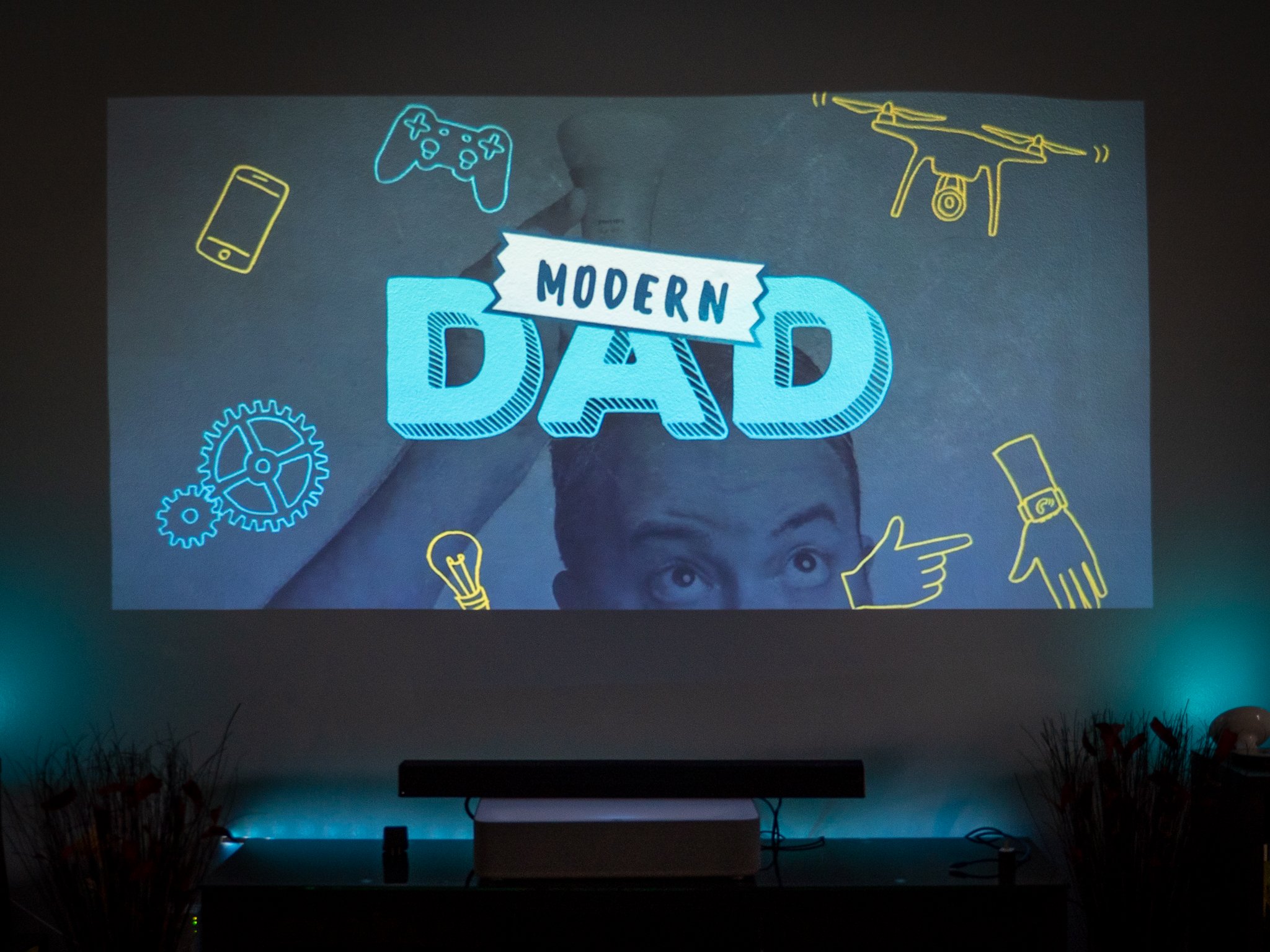
My "TV wall" in my living room is huge. It's the biggest wall in the room. It's perfect for this kind of projector. But it's also 1980s construction, which means that the wallboard is textured, and isn't completely flat. That led to the texture showing throw on lighter backgrounds. And it also made it painfully apparent that the wallboard wasn't completely flat, as seen in the upper-right corner of any picture and video in this review.
But I (and my wife, it should be noted), loved the huge picture, and we loved the look of the large wall with nothing on it or in the way when we weren't watching videos. It's just so much cleaner than having a dark TV or a blank screen. So we'd probably look into a floor-rising screen — or maybe something that drops down. We'd have to think about that. One way or another, though, it'd be an ALR screen — that's short for ambient-light rejecting — to make the picture as good as possible.
But what I'd really do if I was serious about projectors is to redo the wallboard on that wall. We'd make sure it's flush, and something without texture. And then we'd paint it with ALR paint. So the setup would be the same as what you've seen in this review — just better.
We'd also have to do something about the soundbar. I didn't want to put it in front of the projector, because that'd cause the unit to be closer to the wall, and the picture would be smaller. But it also didn't work well behind the projector. So the best options would be to have it fit side the entertainment center somehow (which would require me to have a different entertainment center), or to mount it on the wall, which would be the easier option. (But that also would complicate things if we used a floor-rising screen.)
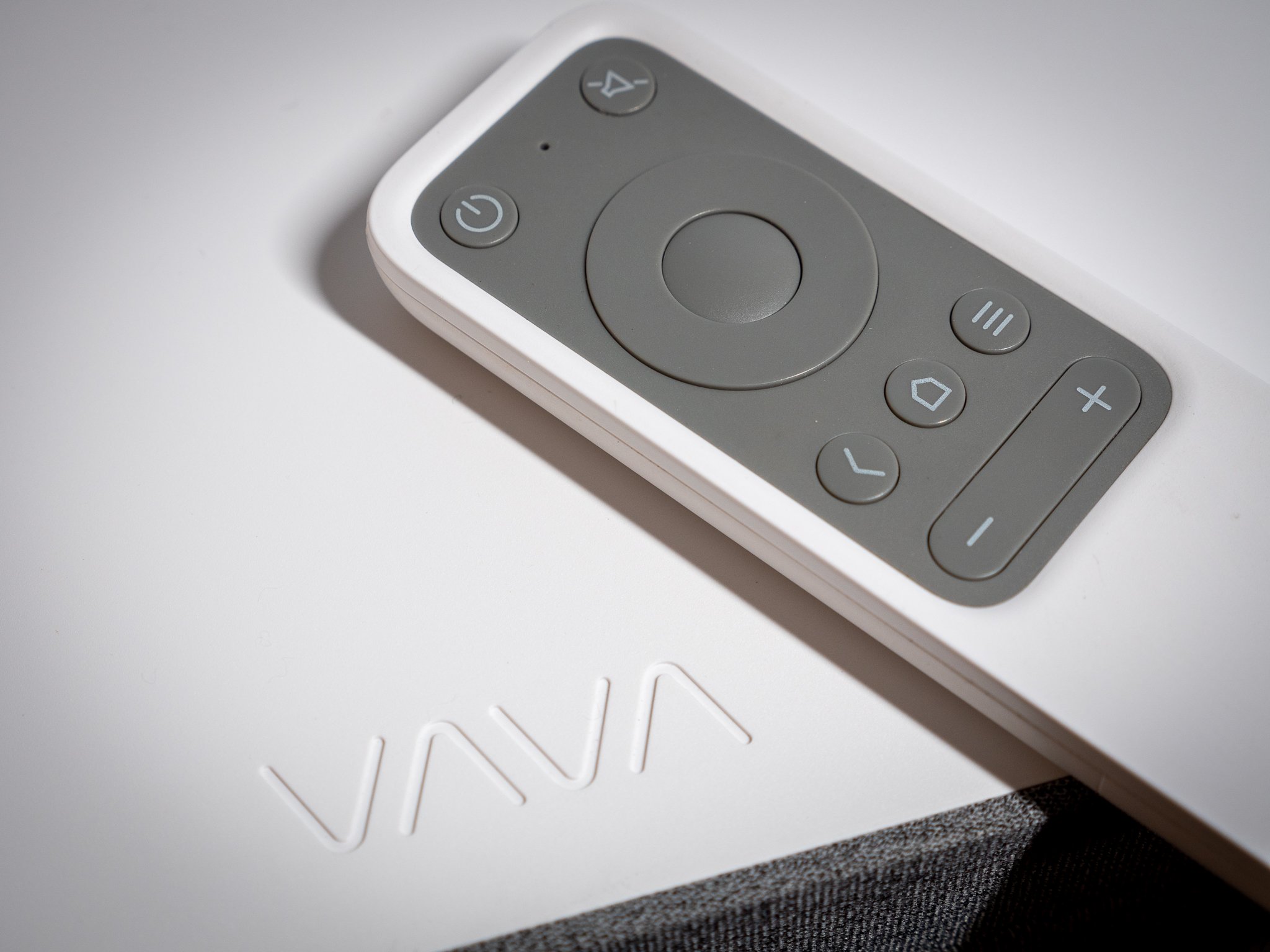
Should you get it? Yes!
The bottom line
You can go buy this projector and set it up in a few minutes and have a bigger picture. A huge picture. It basically turns your living room (or wherever) into a home theater, and it does so at a price that isn't cheap, but is still attainable if you're serious about this sort of thing. It's not the best projector available, but it's still really good for the price.
The one other concern is something that I can't test here — longevity. Back in the day we'd have to worry about the lifespan of bulbs, and those were not inexpensive. VAVA says its lamp is good for 25,000 hours. That's. 1,401 days, as in on all day for 24 hours a day. That's a little less than three years. Or if you want to do the math, it's about two and half dollars a day. (Again, that's if you're running this thing all day, every day, which you almost certainly won't be.)
But what this whole experiment made me realize is that moving to a projector system isn't the same as just upgrading to a bigger television. You're going to need to consider a screen. (I can't emphasize that enough. Build it in to your budget.) You're going to need to consider your audio situation.
And you're going to need a lot of popcorn. Because you're going to want to watch all the things.










